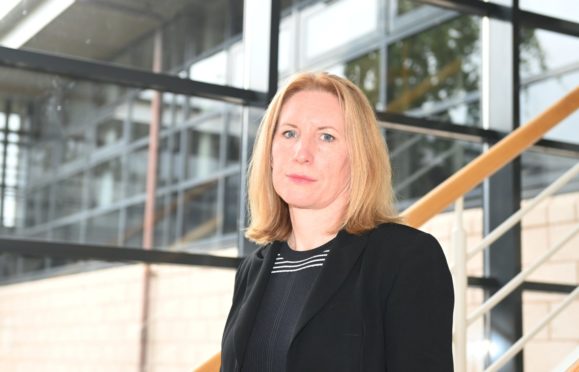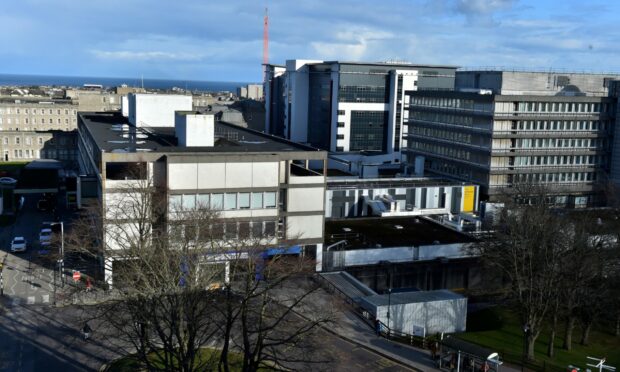The chief executive of NHS Grampian has warned it will take years, rather than months, to clear surgery backlogs caused by the pandemic.
Professor Caroline Hiscox said the health service is facing its “most challenging” time of the past 16 months.
As medics deal with the start of the third wave of coronavirus, waiting lists for hospital appointments and operations continue to rise.
She said many hard-working staff working across the health board were now “exhausted”.
Hospital admissions are increasing “significantly and rapidly” with more patients now coming through the doors of Aberdeen Royal Infirmary.
And fewer beds are available for patients due to increased infection control measures brought in during the pandemic.
“When we are talking about recovering things like surgery we’re not talking weeks, we’re not talking months, we are talking years to recover the position of our surgical backlog.
Prof Hiscox told how clinical staff are faced with making difficult decisions on which patients are most in need of operations.
Hundreds are now waiting for procedures with the largest waiting lists typically in orthopaedics, general surgery and ophthalmology.
“Every single day the clinicians sit down and discuss who is going to get access to theatre and, importantly, the critical care capacity that we have at the moment, and they are making risk-based decisions every day,” she said.
“That’s incredibly difficult for them, for the patients, for the families.
“One of the things they discuss every day is how they avoid cancelling any patients waiting for surgery because everyone is so thoughtful of the significant impact that has on patients, their families, and the teams that are prepared to do that surgery.”
She added: “When we are talking about recovering things like surgery we’re not talking weeks, we’re not talking months, we are talking years to recover the position of our surgical backlog.”
‘Our system was toiling before Covid’
Prof Hiscox said the backlog of patients waiting for both in-patient and out-patient appointments was the highest she had ever seen.
This, in turn, puts additional pressure on primary care services with GPs, community care nurses and social care services supporting these patients while they are on the lists.
“Our system was toiling before Covid,” she said.
“NHS Scotland, but particularly NHS Grampian, recognised we needed to do things differently because we were already asking citizens to wait too long to access particularly elective care pathways.
“And we were asking colleagues to work in pretty difficult circumstances.
Private hospitals are helping with critical cases
“There is a definite recognition and plan for our local, regional and national response to how we recover the position across the NHS in Scotland.
“One of the ways we would normally do that, if we were not in a pandemic, would be mutual aid across health boards, but, of course, every health board is in the same situation.
“So we have received good support in regards to accessing different ways in which we can deliver our most critical surgical procedures, working very differently with the private sector – using their premises and their staff to support our most critical cases.”
She said staff working in the A&E department are remaining busy, adding: “The number of patients attending through Accident and Emergency, or through their general practitioners, are more unwell and the volume of those patients are higher.
“We have had to reduce our bed base to comply with physical distancing so we’ve lost 20% of our bed base across health and care.”
Staff are ‘absolutely exhausted’
She said one of the most important issues for the management team was to focus on the wellbeing of exhausted staff working throughout the pandemic.
Prof Hiscox said: “It feels at the moment it is most challenging now because of the third wave; the anticipated consequences of that, and the backdrop of the significant health debt across our system – the referral rates are back to normal but our capacity is significantly reduced.
“The most critical thing for me is the wellbeing and resilience of my colleagues, they are absolutely exhausted and we are doing everything to support colleagues.
“We’ve established a number of new services around the psychological resilience hub, taking a trauma-informed approach to supporting colleagues who have been in enduring situations which have been incredibly difficult; and making sure that we are listening constantly to work colleagues who are telling us what would make a difference to them.
“And that’s hard, because you can’t fix the fact that we’re in a pandemic.”

